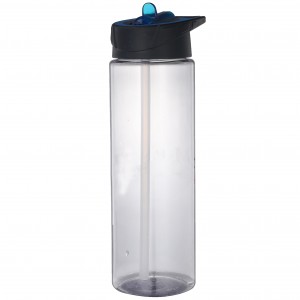Every minute, people around the world buy around 1 million plastic bottles – a number expected to exceed 0.5 trillion by 2021. Once we drink mineral water we create single-use plastic bottles, most of which end up in landfill or in the ocean. But we need water to survive, so we need those environmentally friendly and reusable water cups to replace disposable plastic bottles. Ditch single-use plastics and use high-quality, durable, reusable materials. When it comes to water bottles today, glass, stainless steel, and BPA-free plastics dominate. We’ll go over the biggest benefits of each material choice as well as buying tips in the following articles.
1. BPA-free plastic cups
BPA stands for bisphenol-a, a harmful compound found in many plastics.
Research suggests exposure to BPA may increase blood pressure, negatively impact reproductive and mental health, and disrupt brain development.
advantage
Lightweight and portable, dishwasher safe, shatterproof and won’t dent if dropped, and generally cheaper than glass and stainless steel.
Buying Tips
Compared with glass and stainless steel, BPA-free plastic cups should be your first choice.
When purchasing, if you check the bottom of the bottle and don’t see a recycling number on it (or you bought it before 2012), it may contain BPA.
2. Glass drinking glass
advantage
Made from natural materials, chemical-free, dishwasher safe, won’t change the taste of water, won’t dent if dropped (but it may break), recyclable
Buying Tips
Look for glass bottles that are lead and cadmium free. Borosilicate glass is lighter than other types of glass, and it can handle temperature changes without shattering.
3. Stainless steel water cup-
advantage
Many are vacuum insulated, keeping water cold for more than 24 hours, and many are insulated, keeping water cold for more than 24 hours. It won’t break if dropped (but may dent) and is recyclable.
Buying Tips
Look for 18/8 food grade stainless steel and lead free bottles. Check the inside for plastic lining (many aluminum bottles look like stainless steel, but are often lined with BPA-containing plastic).
That’s it for today’s sharing, I hope everyone can commit to using reusable and environmentally friendly water bottles to take care of yourself, your family and Mother Earth.
Post time: May-17-2024
